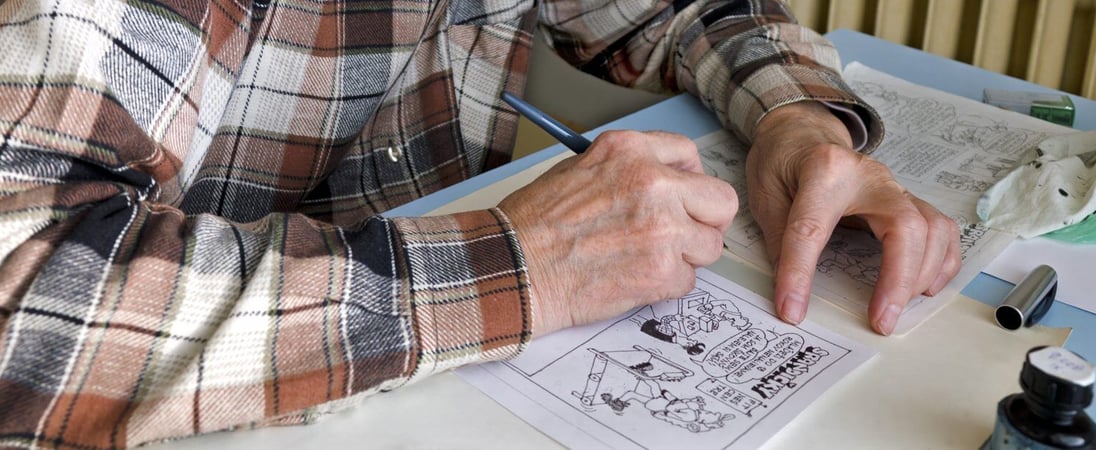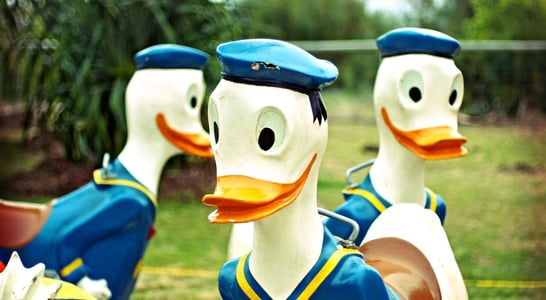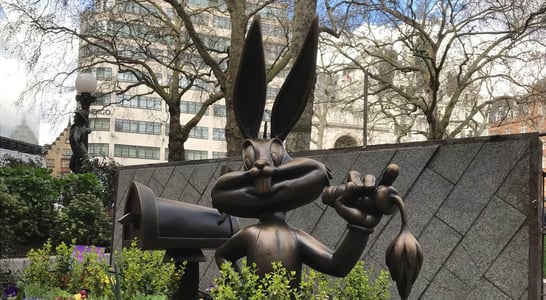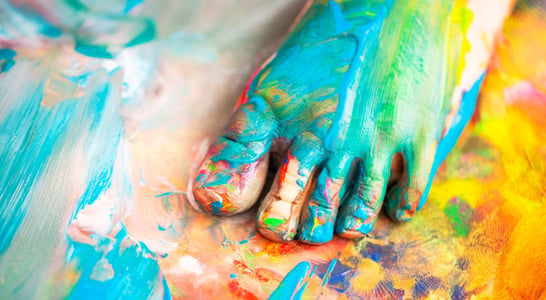
National Cartoonists Day
Take a walk down memory lane by revisiting the beloved, charming, often bizarre cartoons of your childhood like Calvin and Hobbes, or discover new ones.
They were the favorite part of the morning paper for many of us growing up, when we were introduced to the wacky and sometimes bizarre worlds of the characters inside their three-panel soul.
As we grew older and realized there was more to the world than Hagar and Garfield, we discovered deeply compelling stories like Maus and Neil Gaiman’s Sandman.
World upon barely possible world gets told in frame and boxes, word bubbles and strokes of pen, and the people who make it possible are Cartoonists, and National Cartoonists Day is dedicated to them and their craft.
How to Celebrate National Cartoonists Day
National Cartoonists Day is best celebrated by picking up a comic you used to know and love, and walking down memory lane on the part it played in you growing up.
Enjoy Calvin and Hobbes
Open up that worn Calvin and Hobbes comic book by Bill Watterson to find yourself reminiscing of memories of an adventurous boy and his stuffed tiger. Calvin and Hobbes is commonly referred to as the last great newspaper comic.
Chuckle at Dilbert
Not your cup of tea? Snicker along as you turn the pages to the lastest Dilbert cartoons, created by cartoonist Scott Adams. While more mature in content, anyone who has worked in an average office space can relate to the snarky humor presented in Dilbert.
Check Out Online Comics
Online comics are now a thing, and some of them have been running for 12 years or more, like Randy Milhollands Something Positive. Deep characters, compelling storylines, and a rapier wit make it a joy to read, though it’s certainly not for the easily offended.
Whether this comic or another one, discovering new worlds to experience through comics is a great way to spend National Cartoonists Day! You could even draw your own!
Learn More About Cartoons
Get involved with the day by learning about this fun genre! Check out some of these interesting tidbits and consider sharing them with friends:
- The longest known individual cartoon strip is over 1,100 feet in length, and was created by female cartoonist Mons Selvam in Chennai, India in 2019. The cartoon strip is focused on Mons’ childhood, and some of her memories of her village through her fictional character, Gundomalli. Mons Selvam considers herself a “happiness illustrator” as well as a cartoonist.
- The Katzenjammer Kids cartoon is the longest running ever, and it was even made into a play in 1903.
- One of the first film cartoons was released for viewing in 1908, and is considered to be Fantasmagorie, a hand-drawn animated by French cartoonist Émile Cohl. The cartoon, only one minute and twenty seconds in length, consists of a stick figure man running into and morphing into other objects. The short animated cartoon was derived from 700 hand-drawn illustrations. Émile Cohl would go on to be referred to as the “father of the animated cartoon.”
History of National Cartoonists Day
National Cartoonists Day was founded in the 1990s by the National Cartoonists Society to celebrate the many accomplishments of cartonists and all the good they have brought to the world as a result!
In 1895 a man named Richard F. Outcault introduced a small bald kid in a yellow nightshirt to the world in an incredibly popular publication in the big apple at the time, the New York World. While the paper itself was looked upon with a sort of disdain by ‘real’ journalists of the time, the yellow kid was embraced by people everywhere.
Little did Outcault know that when he first created this character, it would lead to a revolution in how stories were told and presented in sequential art pieces (that’s comics, kids!), but would in fact create a new standard piece of content for newspapers everywhere.
The Yellow Kid was an archetype of the world, rather than a character in and of itself. Richard recounted that as he walked the slums of the city on his rounds, he would discover the kid walking out of houses, or sitting and hanging about on doorsteps.
The archetypical “kid” was always warm and sunny, friendly, generous, and free of malice and selfishness. How amazing that Richard saw all the good in the world in the worst parts of it, perhaps that’s a lesson in and of itself.
The Katzenjammer Kids debuted in 1897 in the American Humorist, and has changed over into the hands of three different cartoonists. The original cartoonist of the comic, Rudolph Dirks, was one of the first to regularly indicate dialogue through speech balloons; speech balloons were standardized as the form in which cartoonists indicated dialogue by the early 1900s, and is still being used today.
Not all cartoonists aim to make you laugh but also use the media as a source of discussion. With the rise of the popular political cartoon, cartoonists now use comics and illustration as a form of political discourse.
The political cartoon is an illustration, often with a caricature, to convey commentary on current events or politics. Instead of finding these on the funny pages of a newspaper, they are often found in the editorial pages of a newspaper or journal.
For many years, cartoons were viewed as low-brow in comparison to other forms of art, but the work of cartoonists is important and underappreciated. The art form has grown in popularity with a younger generation that seeks to utilize both art and culture in their media expression.
The internet has allowed cartoonists to reach a larger crowd than when only a select few cartoons were chosen for the Sunday comics section of a newspaper or shown during Saturday morning cartoon times. Today, the two-dimensional art known as comics are not only available to be seen in newspapers but magazines, books, websites, social media sites, and blogs as well!
National Cartoonists Day FAQs
What is the connection between cartoons and the term “yellow journalism”?
Cartoons played a surprising role in shaping the media. “The Yellow Kid,” a popular comic strip in the late 19th century, was central to fierce competition between publishers Joseph Pulitzer and William Randolph Hearst.
Their sensationalized coverage, featuring the comic, helped coin the term “yellow journalism,” symbolizing exaggerated, eye-catching stories meant to boost sales.
How do cartoonists in Japan celebrate their craft differently?
In Japan, manga artists honor their craft by hosting exhibitions and meet-and-greet sessions.
Manga, a distinct art form, has festivals where fans dress as their favorite characters. Some temples even host blessings for artists’ tools like brushes and pens, combining tradition with modern cartoon culture.
Which famous cartoonist worked as a spy during World War II?
Theodor Geisel, better known as Dr. Seuss, created propaganda cartoons during WWII.
He used his artistic talent to support the war effort by designing posters and political cartoons promoting unity and conservation.
His experience in creating these satirical pieces later influenced his whimsical children’s books.
Are there any myths about famous cartoon characters?
Many believe Mickey Mouse was the first animated character, but that’s a myth. Gertie the Dinosaur, created in 1914, predates Mickey by over a decade.
Gertie was an interactive performance piece, with its creator Winsor McCay engaging live with the animation in theaters.
What unusual materials have cartoonists used to create their art?
Cartoonists have used everything from toilet paper to steamed glass for sketches.
For example, Argentine artist Quino, creator of Mafalda, famously sketched his early ideas on cafe napkins. These unconventional materials highlight the improvisation and spontaneity in cartooning.
How has digital technology changed cartooning traditions?
Digital tools allow cartoonists to create animations and comics faster and with more precision.
Software like Procreate and Clip Studio Paint is now standard, replacing traditional ink and paper. This shift has made it easier for independent cartoonists to share their work worldwide.
What role did women play in early cartoon history?
Women like Grace Drayton shaped early cartoons. Drayton, one of the first female cartoonists, created “Dolly Dingle,” a popular paper doll character.
Her work paved the way for future female artists in an industry long dominated by men.
How do countries without a strong comic tradition celebrate National Cartoonists Day?
In some countries, local artists host workshops to teach the basics of cartooning.
These events emphasize cartoons as a universal language. In India, for example, cartoonists use the day to highlight social issues through satire and humor.
Which cartoonists gained fame posthumously?
Winsor McCay, creator of “Little Nemo,” wasn’t widely appreciated in his lifetime.
After his death, critics and historians recognized his innovative use of perspective and surreal storytelling. Today, he’s celebrated as a pioneer in the comic and animation industries.
What unusual themes have been tackled in comics historically?
During the 1940s, comics covered everything from superhero adventures to unexpected topics like dental hygiene and banking.
For example, DC Comics once published a strip promoting safe banking practices, showcasing the flexibility of cartoons as a medium for education.
Also on ...
View all holidaysNational Astronaut Day
Blast off into an out-of-this-world celebration! Learn about space, astronauts, and explore the cosmos. It's time to reach for the stars!
International Midwives’ Day
Doctors and hospitals are a recent development for birthing. In the past, experienced women called midwives kept new mothers and babies safe during birth.
Revenge of the Fifth
Cheering for the dark side, and finding fascination in characters who embrace their complexity and challenge traditional notions of good and evil.
We think you may also like...
National Donald Duck Day
Embrace your own angry inner waterfowl on Donald Duck Day by getting into character, or firing up some of the classic Disney films and programs he stars in.
National Bugs Bunny Day
This famous cartoon character has been entertaining audiences for generations with his quick wit and cunning, playful demeanor.








